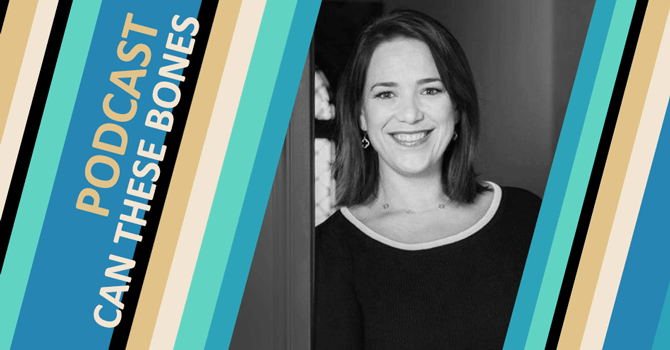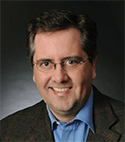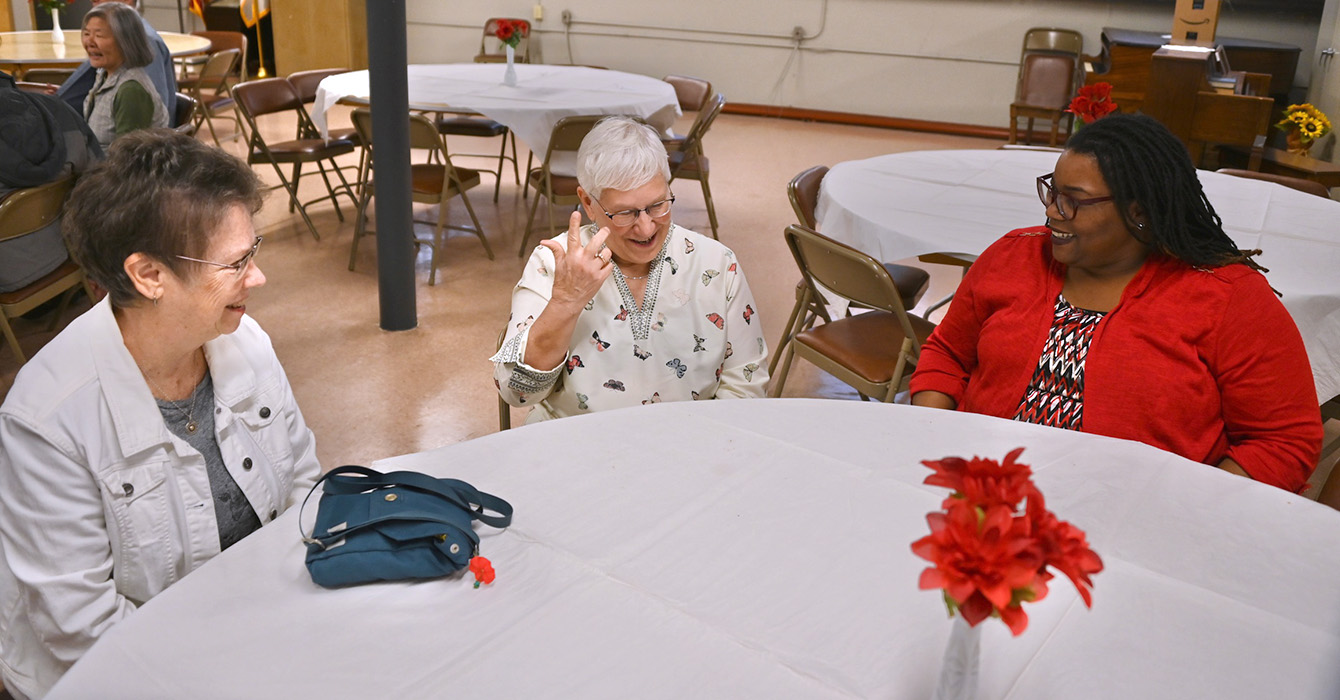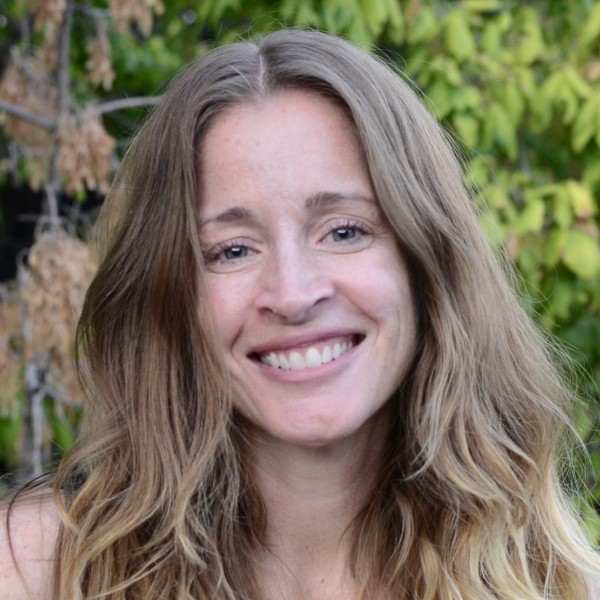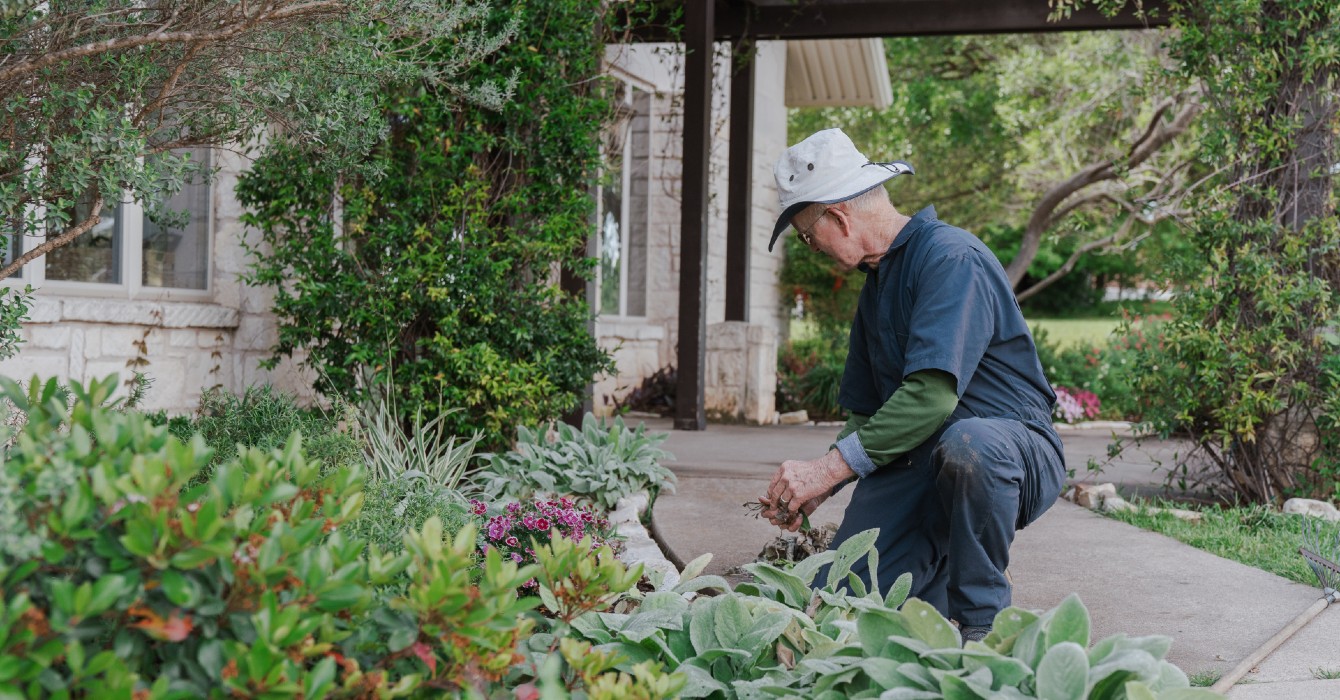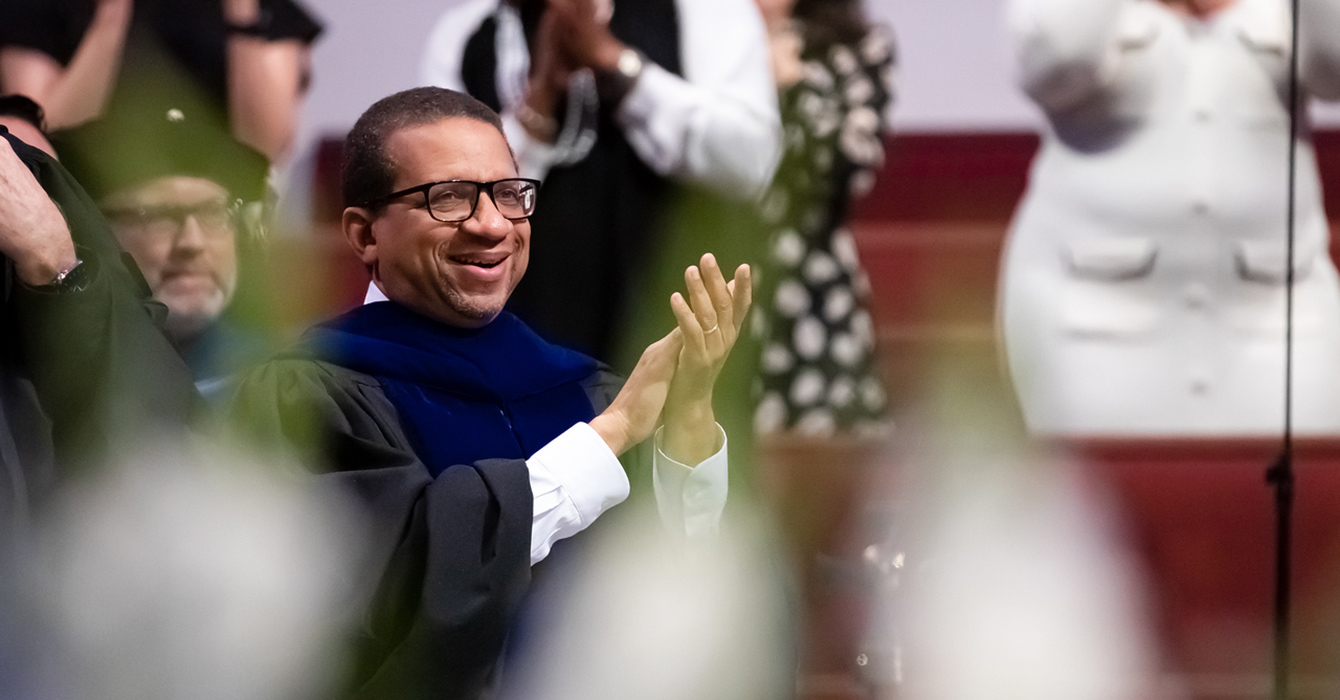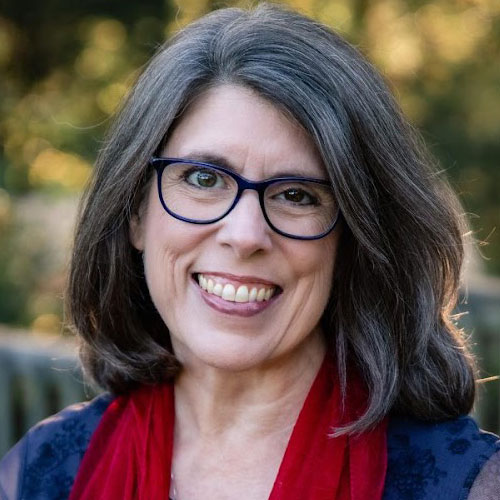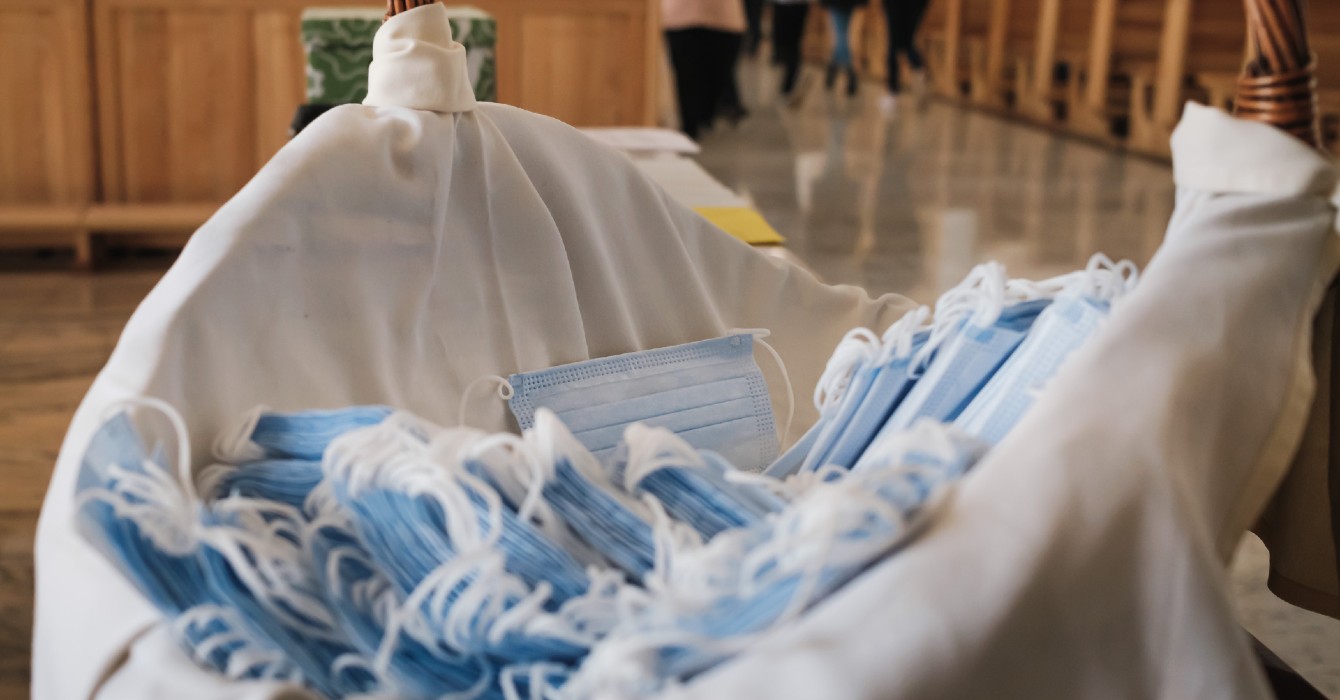Update: The Rev. Dr. Amy Butler served as the senior minister of The Riverside Church until June 2019.
After decades in the mainstream, comfortable and complacent, the church is now being pushed to the margins of American life, says the Rev. Dr. Amy Butler, senior minister of The Riverside Church in New York.
But that’s not necessarily a bad place to be, she said.
For years, the church has failed to speak prophetically to the issues of the day, but now everything is changing.
“The church is being pushed to the margins of society, which to me is one of the most exciting things I’ve seen in a long time,” she said. “Because, finally, maybe we have the courage to stand up and say the things that need to be said.”
Life on the margins brings with it a certain amount of freedom, Butler said.
“I don’t need to perpetuate this institution, the church, anymore,” Butler said. “If we hold it loosely, and we have the courage to live into what the gospel is calling us to do and be, who knows what could happen?
“This is God’s work. God’s up to something, and the choice that the church has is, ‘Do you want to be part of it?’”
Butler was elected as Riverside’s seventh senior minister in June 2014 and assumed her new duties last fall. Before that, she was senior minister for 11 years at Calvary Baptist Church in Washington, D.C., and before that, worked in New Orleans with the homeless community and then as associate pastor at St. Charles Avenue Baptist Church.
Butler has a B.A. and an M.A. in religion from Baylor University in Waco, Texas, a B.Div. from the International Baptist Theological Seminary in Ruschlikon, Switzerland, and a D.Min. from Wesley Theological Seminary in Washington, D.C.
She spoke recently with Faith & Leadership. The following is an edited transcript.
Learning a whole new way of being a leader and a pastor.
When you’re the pastor of a 250-member church, you know everybody. You’re there when every baby is born; you do every funeral. But in a system like Riverside, it’s difficult to form relationships with congregation members in the way that I have always understood what it means to be a pastor.
That has been a big learning curve for me.
There are also administrative challenges. I’m the head of a very large staff, which I wasn’t before, with huge responsibilities that are new to me.
And then, of course, New York City. It’s a whole other culture and environment. That has also been part of my learning curve.
We have a staff of about 140-150. My responsibility is to nurture and build a team at the senior level and to empower them to nurture and build their own teams that ripple out and cover the entire church.
One of the first things I did [after being elected] was call everyone I knew who knew anything about Riverside so I could learn as much as I could before I went in. And someone told me something that really stuck with me.
They said, “This is a very, very, very big, complicated system. Do not go into it alone. You do not have the capacity to see what you need to see. You need a partner who will help you assess the system and begin to move it toward health.”
So I immediately understood that my very first challenge was to identify a partner in this work, somebody to serve as the executive minister and be my teammate in entering a complicated system, getting to know every little corner and then beginning to articulate a plan for how we move toward health.
Looking at it from the outside, I had certain ideas about where I thought my attention needed to be focused. But when I got into the system, that shifted. I could see things differently, and had to recalibrate my priorities.
From the outside, I had certain ideas about which positions were ineffective and which applications of talent might need to shift. But when I got into the system, I saw some holes in the senior staff, for example, where we had too much of the pastoral care responsibility on one person. We also did not have a minister who was in charge of worship and arts.
So I needed to recalibrate not only the talent but also the positions.
Another thing that surprised me was that there was not as much connection and sense of community among the congregation as I would have expected. This is a cathedral, so it’s very easy to walk in and be anonymous and sit, worship and leave.
I quickly realized that my efforts this first year had to be around creating connection, creating relationship, creating community in every possible way that I could.
The church had done some significant healing, but yes. There are still vestiges of hurt, and even deeper issues around racism, and schisms around power and history, that sort of linger in the hallways.
It’s like when you come into a social situation and you’re unaware of all the history, and you’ll easily step into a hole, because you didn’t know you shouldn’t say that. There are these little holes all over the place. It can be difficult to navigate.
One of the powerful moments from my first year was at my installation in October, when I asked both of the church’s living former senior ministers -- Dr. James Forbes Jr. and Dr. Braxton -- to be part of the service. It was important to me that all three of us were there together.
There was a lot of pain around Dr. Braxton’s leaving. I knew that, but I didn’t know the full extent that people were carrying that deep pain. To see the closure that happened was really powerful.
If anything has deepened in my first year at The Riverside Church, it would be my conviction that we need the church, and the world needs the church, and the church is not going to go away. As human beings, we crave connection with each other, and we are all in some way, shape or form asking bigger questions: “Who am I? Why am I here? What is the purpose of my life?”
Church is a unique place that offers connection across ages and races. Hopefully, it’s a place where we can raise some of these hard questions that our linear societies do not allow us to raise.
So it’s not going away. What form it’s going to take, I don’t know.
Here’s my second conviction: We have to learn to love and trust each other at The Riverside Church, and that will be the foundation for an entrepreneurial new church. We’ll try some things and they won’t work, and we’ll try some things and they will work, and we’ll make our way, but only if we are actively engaged in being a beloved community together.
I love this. This is probably at the very deepest core of why I feel so called to be in this place.
The Riverside Church is an amazing community of faith, but it is also an iconic metaphor for the church as a whole. And if you and I were going to start a church today, we would probably not buy up a plot of land on the river in Manhattan and build the tallest church in America. That’s just not the model of the future.
But we have been given this gift, and we’re stewards now of this place, which means something for the building and the people in it, and something for the church universal.
What better place for us to launch new initiatives and to try new things? We have the platform, we have the resources, and we are going to build a community that is going to empower that to happen.
Yes. I love that word, “incubator.”
My first stab at making this happen is hiring a staff that reflects what I think the future church is going to look like. I have hired an ecumenical staff from across a wide variety of denominations. I’ve hired people from different racial backgrounds, gender orientations, sexual orientations, all different kinds of backgrounds, and empowered them to start doing this entrepreneurial work.
We just had a meeting last week where our new worship and arts minister announced that in the fall she’s starting a monthly service called “Worship Lab.” Every month, we’re all going to try something different. We’ll have a sacred time of bringing into our experience new liturgy, different music, trying new things.
We’re going to build a system of small groups in this church, but the future of our engagement with our community has to do with podcasts.
All of these students in our neighborhood -- all over the Columbia University area -- listen to two or three podcasts a week. So we’re going to jump in the game.
Those are things that excite me, and those are examples of what I hope will happen as I try to nurture this incubator of new church.
Riverside, this iconic voice in the life of progressive Christianity, has had a rough transitional period where they have been focused appropriately on their own internal pain and healing. And this year, having called a new pastor, we’ve begun to turn our gaze outward again -- and what a year to do that, when the racial realities of our country have been in the forefront of our everyday life.
So it’s given us many opportunities to think creatively about how are we, given the history of our community, to step up at this time to say things that are important about racism in America.
I think the church in America has not been speaking prophetically to the issues of our day, and part of that has to do with our own racism and our own inability to care for the planet and our own discriminatory views.
But part of it is we’ve just been too comfortable. We’ve been in the mainstream of society, accepted by everybody. We’re the popular kids on campus. So we haven’t had to do that, and why would we? It’s uncomfortable.
Everything is changing now, though. The church is being pushed to the margins of society, which to me is one of the most exciting things I’ve seen in a long time -- because finally, maybe we’ll have the courage to stand up and say the things that need to be said.
I have a friend who posted on Facebook on Monday [after the killings at Emanuel AME Church]: “I sat through the entire worship service yesterday morning at 11 o’clock and no one mentioned Charleston, South Carolina, one time.”
That makes me want to put my head down on this table and cry.
But now, there’s the freedom, right? I don’t need to perpetuate this institution, the church, anymore. If we hold it loosely, and we have the courage to live into what the gospel is calling us to do and be, who knows what could happen?
This is God’s work. God’s up to something, and the choice that the church has is, “Do you want to be part of it?”
That was one of my favorite stories, because it was the first story that was not focused on the fact that I’m a woman. And I was like, “Thank you!”
And then I see the headline.
Seriously? I’ll get right on that in my free time.
But I also appreciated it, because I grew up in an evangelical home. My parents were very conservative evangelicals, and I credit my upbringing with a lot of gifts in my life.
This kind of bridging needs to happen. It won’t all be done by me, but I think that that [headline] is naming something really exciting that has to happen.
In terms of the expectations, I can’t think too much about them. I have to do the work that’s set out for me to do -- to give my best attention to what God is calling me to do and to be in this place and to tune out some of those things that can get really distracting and worrisome.
The hardest part has been the public piece.
How does one go to the White House to have breakfast with President Obama? My first day of work was Maya Angelou’s memorial service [at Riverside]. I hung out one morning with Toni Morrison and Wynton Marsalis and Alicia Keys and Hillary Clinton. I have this constant, “What happened to my life?”
It’s almost surreal. I can see how the prominence of this pulpit can become a distraction, because it’s exciting and it’s surreal and it’s amazing. When you go to seminary, you never imagine that this is going to be your work. But for me, it is.
My work is about focusing on the task at hand and then not getting distracted by all of that.
And the way that I’ve tried to do that over my career -- but especially this year -- has been to keep people around me who tell me the truth all the time. I have hung on to them like lifelines this year, because just being in this position has pushed me to another level of “I don’t know.”
More people know who I am than ever did before. And it’s hard for me to know who I can trust; it’s hard for me to sort motivation and relationship. So I have really depended on these truth tellers and hung on to them for dear life this year.
I was not a conventional choice for Riverside. They have had a history of calling famous voices and superstars into this pulpit.
I’m a good preacher, but I’m a pastor. That is my gift.
So I kind of dismissed the, “Well, this is a big pulpit!” I underestimated the responsibility of that pulpit and that platform, and I was unaware of the impact it would have on my own life and my own way of being in the world.
I never had anybody ask me for my autograph before. Every Sunday, this is like Disneyland for pastors. Every Sunday, there are pastors who come through the line and say, “I’m on vacation, and the one place I wanted to go was to Riverside Church …” -- which I totally understand, right? -- “and, well, can I take my picture with you?”
It is so … surreal.


